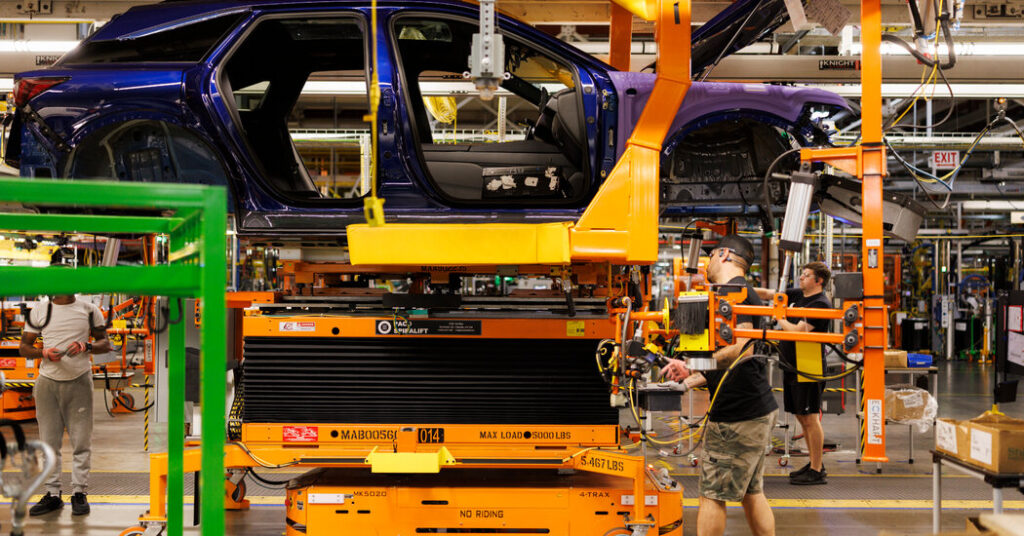On Thursday, General Motors announced a more than 20 percent reduction in its profit expectations for 2025 and revealed that tariffs imposed by the Trump administration would raise its costs by $4 billion to $5 billion this year.
During a call with analysts, G.M. leaders stated they now forecast earnings between $8.2 billion and $10.1 billion for this year, down from an earlier estimate of $11.2 billion to $12.5 billion.
Mary T. Barra, the company’s CEO, remarked, “G.M.’s business remains fundamentally strong as we adapt to the changing trade policy landscape.”
In April, President Trump enacted a 25 percent tariff on imported vehicles, with the same duty set to be applied to imported auto parts starting Saturday. On Tuesday, he adjusted the application of these tariffs to offer some relief to automakers, including partial reimbursements for tariffs on imported parts for two years.
Barra noted that G.M. aims to counter approximately 30 percent of the tariffs’ impact by boosting production at U.S. facilities, reducing expenses, and collaborating with suppliers to enhance domestic production of parts.
G.M. had earlier announced plans to increase pickup truck output at a factory in Fort Wayne, Indiana, which will lessen its imports from Canada and Mexico. Barra indicated that production at the Fort Wayne site would rise by about 50,000 trucks this year.
She also mentioned that G.M. plans to manufacture more battery modules within the U.S. to enhance the domestic content in its electric vehicles.
An estimated $2 billion of the cost increases related to tariffs will stem from vehicles produced in Canada, Mexico, and South Korea but sold in the U.S.
Experts predict that these tariffs could increase the cost of new cars and trucks by thousands of dollars, which may be transferred to consumers. During the call, G.M.’s CFO, Paul Jacobson, stated that the company anticipates a rise in new vehicle prices of 0.5 percent to 1 percent this year, shifting from their previous prediction of a 1 percent to 1.5 percent decline.
Other automakers are also looking to ramp up production in the United States. On Thursday, Mercedes-Benz announced plans to manufacture a new vehicle at its Alabama plant, which the German automaker described as part of its “deepening commitment” to U.S. manufacturing.
Although Mercedes did not reference tariffs, it and other car manufacturers have emphasized their existing U.S. production and plans for expansion in recent weeks. Details on the new vehicle were not disclosed, but it is specified to be a fresh design aimed at the U.S. market and is slated to enter production in 2027.
The factory near Tuscaloosa, Alabama, predominantly assembles luxury SUVs, including electric variants, for both the U.S. market and export.
Jack Ewing contributed reporting.


